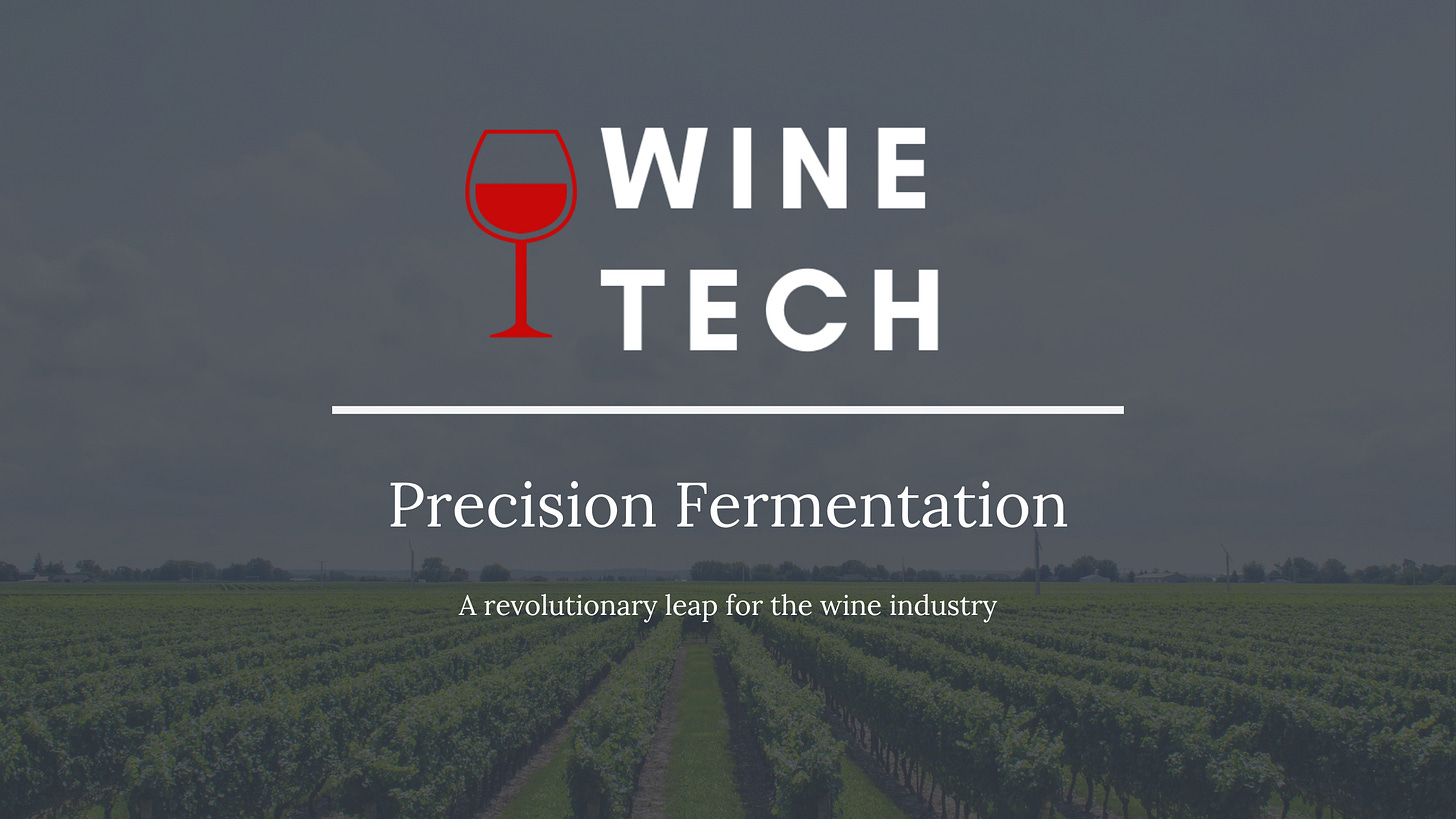Precision Fermentation
A revolutionary leap for the wine industry
As wine lovers, we are no strangers to the diverse world of wine-making. The techniques used to create the perfect blend of flavours and aromas can be traced back thousands of years, and while wine production has evolved significantly, the fundamental process remains relatively unchanged. However, a novel concept known as precision fermentation is emerging and promises to bring a paradigm shift to the wine industry.
Let’s explore the concept of precision fermentation and its potential applications in wine production.
So what is Precision Fermentation?
It’s is a cutting-edge biotechnological process that allows for the creation of specific compounds or ingredients with high accuracy and control. It involves the use of microorganisms, such as yeast or bacteria, to produce targeted molecules by breaking down and converting substrates into desired products. This technology is mainly driven by advancements in synthetic biology, genetic engineering, and bioprocessing techniques. It has been of particular excitement in the dairy food industry where it has the potential to enable the mass production of dairy-free milk products with almost exactly the same characteristics as the real thing, and it’s already being used to create the meaty taste and texture in meat-free food products. The technology has been moving down the cost curve significantly where in 2000 in cost $1million per kg it now costs less than $100 and is predicted to be just $10 by 2025.
How might precision fermentation apply to the Wine Industry?
Customised Flavour Profiles:
One of the most promising aspects of precision fermentation is its potential to create wines with customised flavour profiles. By modifying the microorganisms (yeast and bacteria) responsible for fermentation, winemakers can control the production of various aroma compounds and flavours. This means that they can develop unique and innovative wines that cater to specific consumer preferences or market trends.
Consistent Quality:
Precision fermentation allows winemakers to achieve greater consistency in their products. Traditional fermentation processes can be unpredictable, with factors such as temperature, pH, and the presence of wild yeasts affecting the outcome. However, by using engineered microorganisms and closely monitoring the fermentation process, winemakers can ensure that each batch of wine is produced with the desired characteristics.
Enhanced Sustainability:
The wine industry, like many agricultural industries, has long been criticised for its environmental impact, with issues such as water usage, the use of pesticides, and carbon emissions (although mainly from making and transporting heavy glass bottles) being major concerns. Precision fermentation can contribute to a more sustainable wine production process by reducing the need for certain inputs, such as chemicals, and minimising waste generation.
Production of Non-Alcoholic Wines:
The demand for non-alcoholic drinks is on the rise (increasing 20% year on year[2]), and precision fermentation can help cater to this market segment. By controlling the production of ethanol during fermentation, winemakers can create non-alcoholic wines that retain the desired flavours and aromas of traditional wines. This innovation can expand the wine industry's reach to consumers who may have dietary, religious, or health-related reasons for avoiding alcohol.
So in summary, precision fermentation is an exciting development that has the potential to revolutionise the wine industry. By offering the potential for customised flavour profiles, consistent quality, enhanced sustainability, and the production of non-alcoholic wines, this technology has the potential to change the way we think about wine-making. As the industry continues to innovate and adopt these advancements, wine drinkers can look forward to a more diverse, sustainable, and inclusive world of wine. There’s a long way to go before we see wines on our shelves that have been made in this way but we should be seeing some of the larger mass-production wineries starting to experiment over the next few years, if they aren’t already.
References
[1] https://www.sweep.net/blog/the-revolution-will-be-fermented
[2] https://www.cbc.ca/news/canada/non-alcoholic-sales-1.6722288



